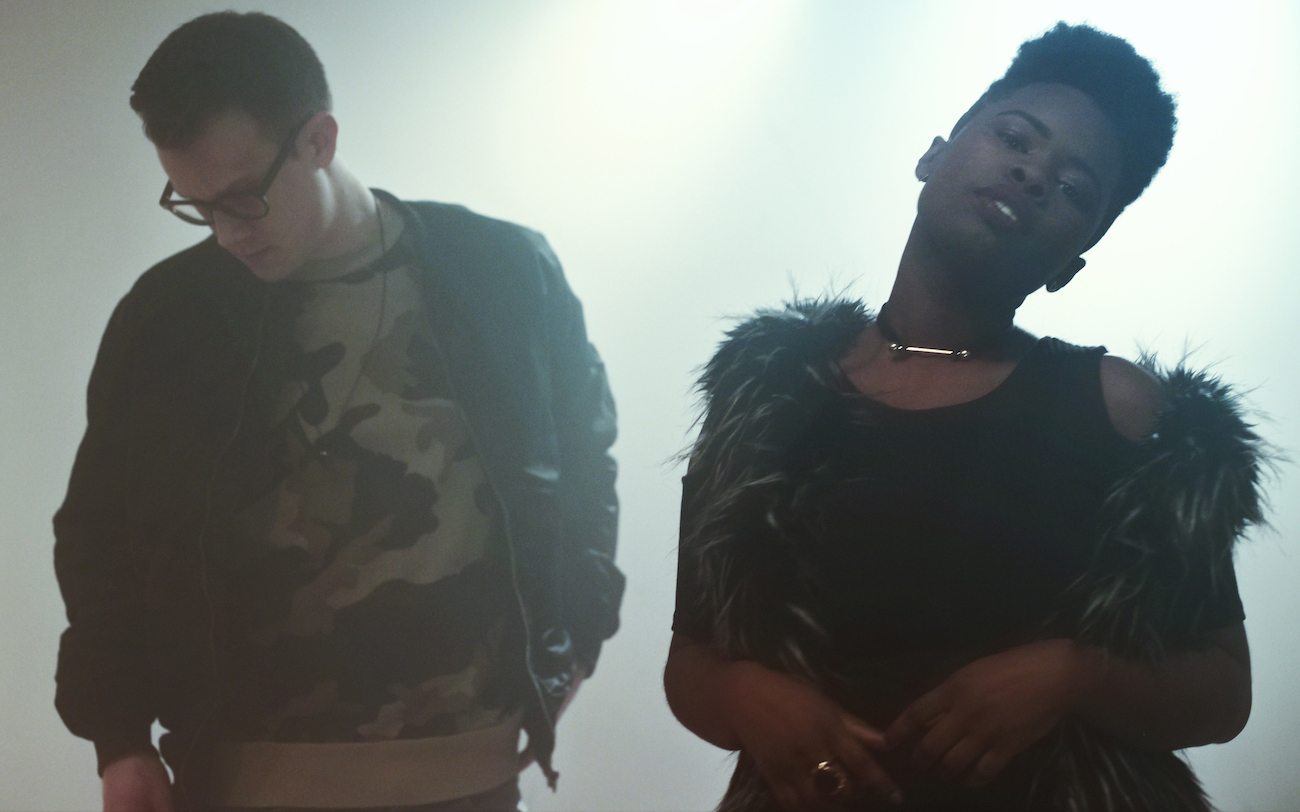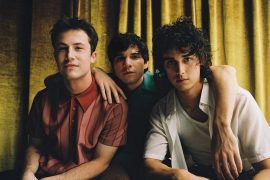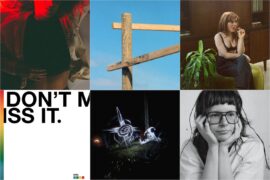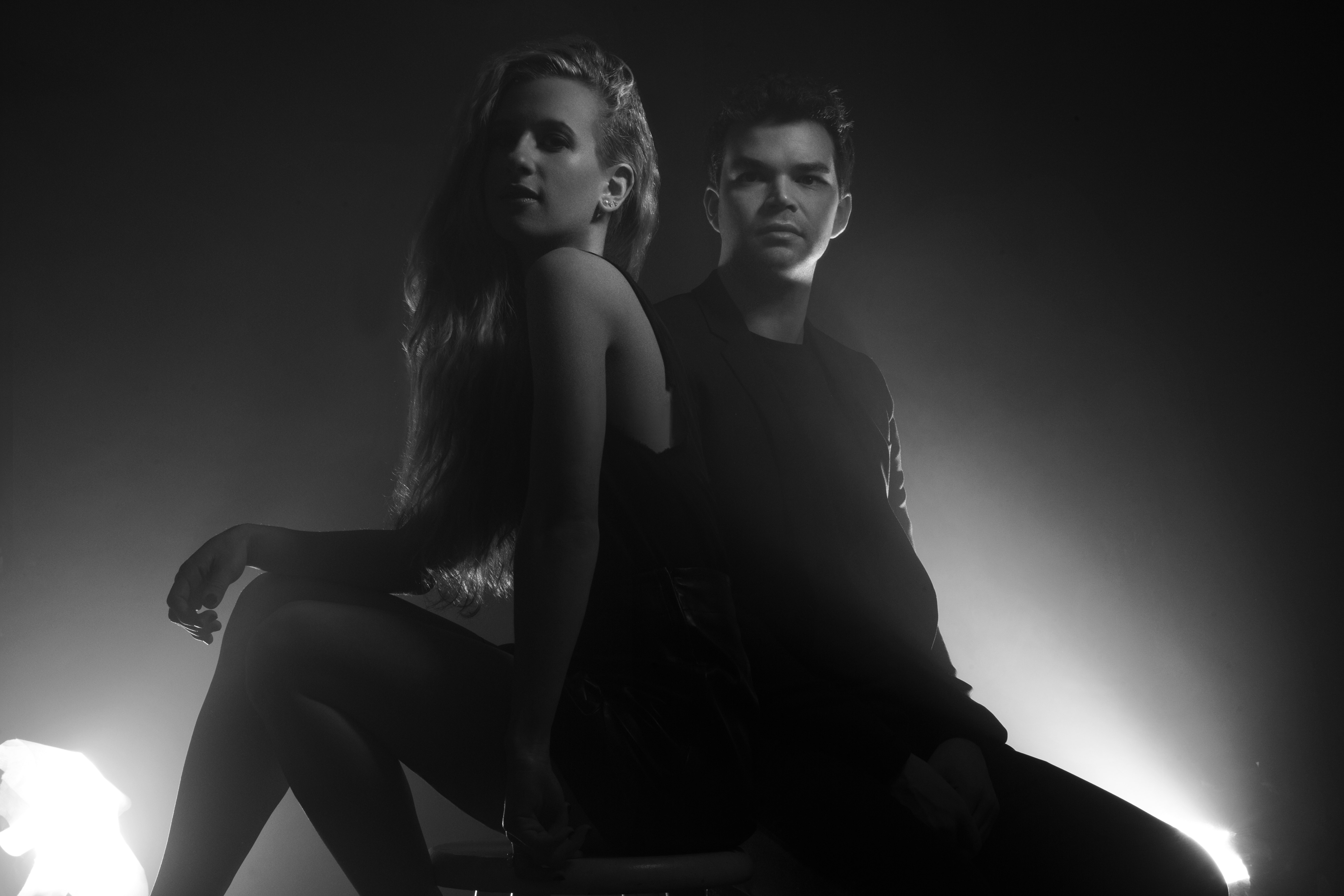A conversation with Mexico City based cellist and songwriter Mabe Fratti about her marvelous new album and the one big question that inspired it.
‘Será que ahora podremos entendernos’ – Mabe Fratti
I believe there’s beauty in dissonance. Our ears are accustomed to reacting a certain way when hearing certain sounds, but it all depends on the attention you pay to them.
Mabe Fratti lives in an old Mexico City neighborhood called Colonia Obrera. It gets its name from the many artisans that first lived there and the factory workers that later organized into unions as industrialization took hold of the area.
Inside her apartment there’s traces of music everywhere: instrument cases, cables and pedals, stands with music sheets on them, her cello in the corner of the improvised studio we sit in… Even as we start chatting, I can hear the sound of Mabe’s partner playing an acoustic guitar coming across from another room. It’s a proper artist’s home, one that prioritizes having creative spaces over having a room with furniture pointing towards a TV.

In a way, Fratti honors the spirit of “la Obrera.” She’s a song-worker dedicated full time to her craft. And just like so many of the laborers in the early twentieth century who were migrants from other states and countries, she moved from Guatemala to Mexico in 2016 in search of a broader scene where her unique style of music could flourish.
After running a record label based in CDMX focused mostly on folk, indie and ambient for a decade, I can tell you: as great as this town can be, it’s not easy to be above the noise. There’s so much stuff going on all the time –from the deepest underground to the most mainstream– that it can be incredibly hard and frustrating for new independent artists to find a space and an audience. I’ve seen several great bands and songwriters become stuck or quit because they just don’t fit the narrative.
Fratti’s case is exceptional though. She is one of those rare talents that would feel as comfortable playing in an avant-garde event at an art gallery as she would on a Thursday night gig at a beatdown rock venue. In only a few years she has established herself as one of the most admired voices in the local independent community and started to gain international recognition, collaborating with relevant artists such as Peter Broderick and Brad Weber (of Caribou). All while remaining true to her strange melancholic sound. It’s not easy to pin down her compositions because she glides so effortlessly between genres, blurring the borders between experimental, classical and indie aesthetics. To me, that’s the key thing about her music and it all starts with the cello.

Mabe Fratti is a multi-instrumentalist, but her main instrument is the cello, ever since she was told at her music academy in Guatemala that she didn’t have the lungs to play the sax and decided to pick up the bow instead. The cello is a fretless instrument. Press the strings on the right spot and you can get some of the most beautiful sounds western music has to offer. Press them just a tiny inch to the side and the tune falls completely apart. Fratti has taken this minute gap between harmony and dissonance and turned it into an immersive musical exploration on the two albums she has released so far.
On her brand new LP Será que ahora podremos entendernos? (out on all streaming platforms via Unheard Of Hope) this connection between beauty and distortion happens gradually. It feels like an enthralling journey in which each track reveals a new part of a puzzle. The record begins with a slow-burning first half in which Fratti’s mesmerizing cello loops and haunting vocals are accompanied by 80’s synth arrangements and a strong shoegaze influence. Then, little by little, the music starts shifting and disintegrating in the best way possible, heading towards a darker space of noise and experimentation.
I sat down with Mabe Fratti for the first face to face interview either of us had done in a long while to talk about the album. The title translates roughly to Will we be able to understand each other now? Although I would add an extra “maybe” somewhere in there. There’s something about the word “será” in Spanish that just implies an extra layer of doubt or scepticism. It’s such a poetic and memorable title that I wanted to start by asking about it. Turns out that was the origin of everything:
“I had the album title before any of the songs. I was talking with a friend about the idea of the mind as a funnel of words. It’s like we are only able to get out a very small amount of what we are feeling and trying to express. It’s all a constant attempt at trying to be understood by others. It trips me out to think how clumsy our communication usually is. I’ve always found language fascinating, ever since I was very small. Always from a very naïve perspective because I didn’t study lingüistics or anything like that, but yeah… we were talking about the feeling of stuttering and being lost for words, and that’s where the whole concept came from.”
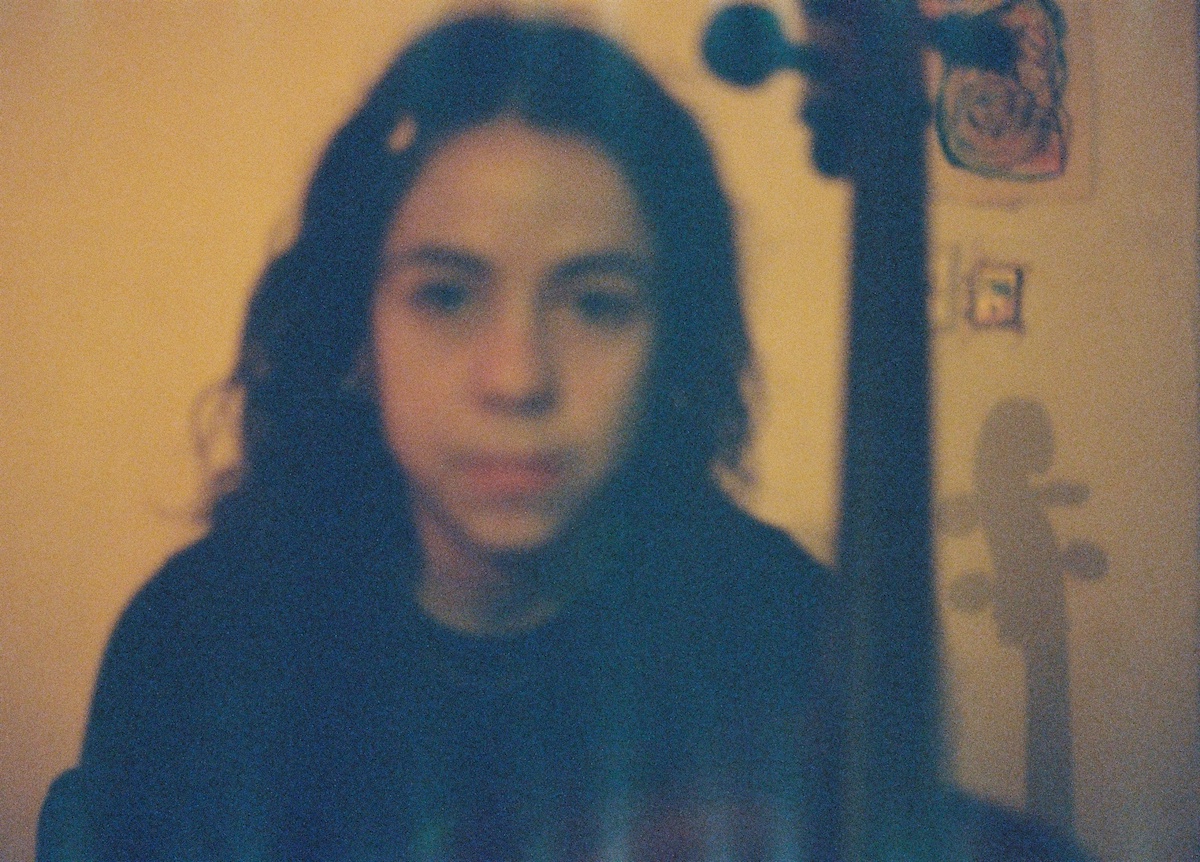
There’s a character Daniel Johnston used to draw of a man with his head cut open in half.
Mabe showed it to me during our interview to explain how she pictured this idea of the mind as a funnel. If you search for Daniel Johnston drawings online you’ll find one quickly. I see it a bit differently. To me, the drawing feels more like the character can’t contain anything inside, like his thoughts would just scatter in the wind. But it’s interesting to think that Daniel Johnston was precisely someone who had a very hard time communicating with plain language. Mental illness made him feel misunderstood and isolated from the rest of the world, but he found a way to connect with others through his drawings and his music because art can reach a level of expression that words cannot. This is what Mabe Fratti is doing on this record too. If the title poses a heavy question, then each song is a new attempt to answer it. Fratti explains:
It’s a pretty eclectic album. It’s full of different ways to try to make oneself understood… to try to access that connection that the title is referring to.
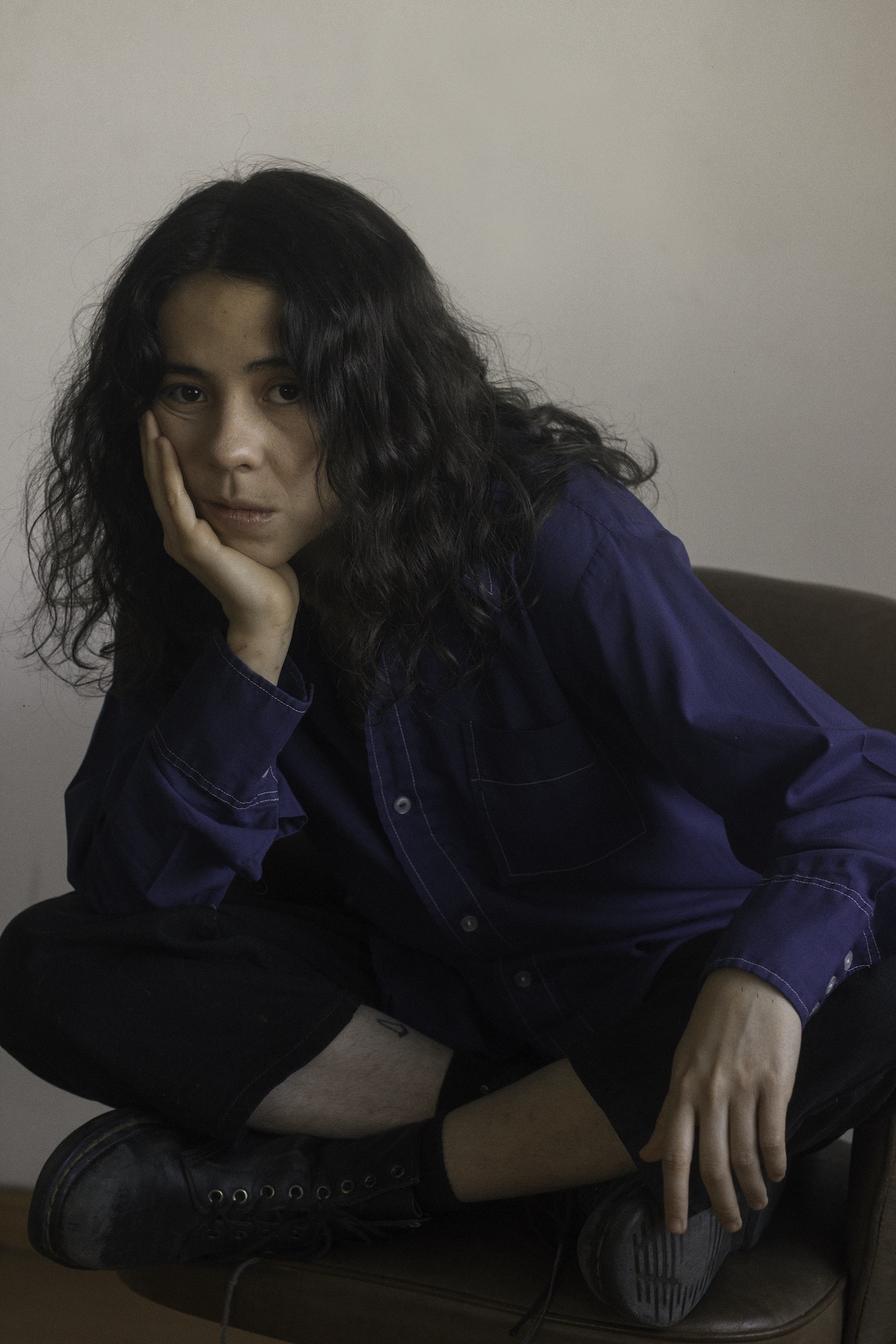
Even as it descends from order into entropy, Será… feels like a very cohesive record as a whole, but I believe the eclecticism that Fratti means comes from how many different kinds of songs it contains. There are carefully structured tracks and wild improvisations; some have lyrics and some are purely instrumental; ones driven by clean pop melodies and others by lush reverb-filled atmospheres. Just as she says, these are all different approaches to try to get a clear message across. However, the explorations on the album are not not all about communication between artist and listener, but about the connections that emerge when making music collectively too.
“There is definitely a progression from the intelligible to the unintelligible. The last song, in fact, is a full on improvisation with my musician friends who were there when most of the album was recorded. It is ironic to think that this crazy unintelligible jam will probably be the least accessible track for most listeners, but at the same time it came from a place of intense magical connection with other musicians. So there’s more than one layer to how we can communicate and be understood, you know?”
The more I talked with Mabe Fratti, the more I realized just how deep she had gone down the rabbit hole of the album’s concept.
During quarantine in 2020, Fratti was invited to La Orduña, an old factory turned squat house turned artistic residence near the city of Xalapa in Veracruz. She went there simply to spend time with friends and with no intention of making an album. And then this question came up. Will we be able to understand each other now? It stirred something inside and she kept circling it until the first song came up. From there, she just kept digging, looking at the same question from all possible angles. Here’s how she remembers it:
“I didn’t go there to make an album. One day, after this talk with my friend, I sat down to play and decided to follow that line. I configured myself to think in those terms. So whenever I wrote something I was thinking about the same idea. Whatever I wrote had to come out of that. So it was more of a configuration… a mind set if you will… rather that a well-thought-of style of writing.”
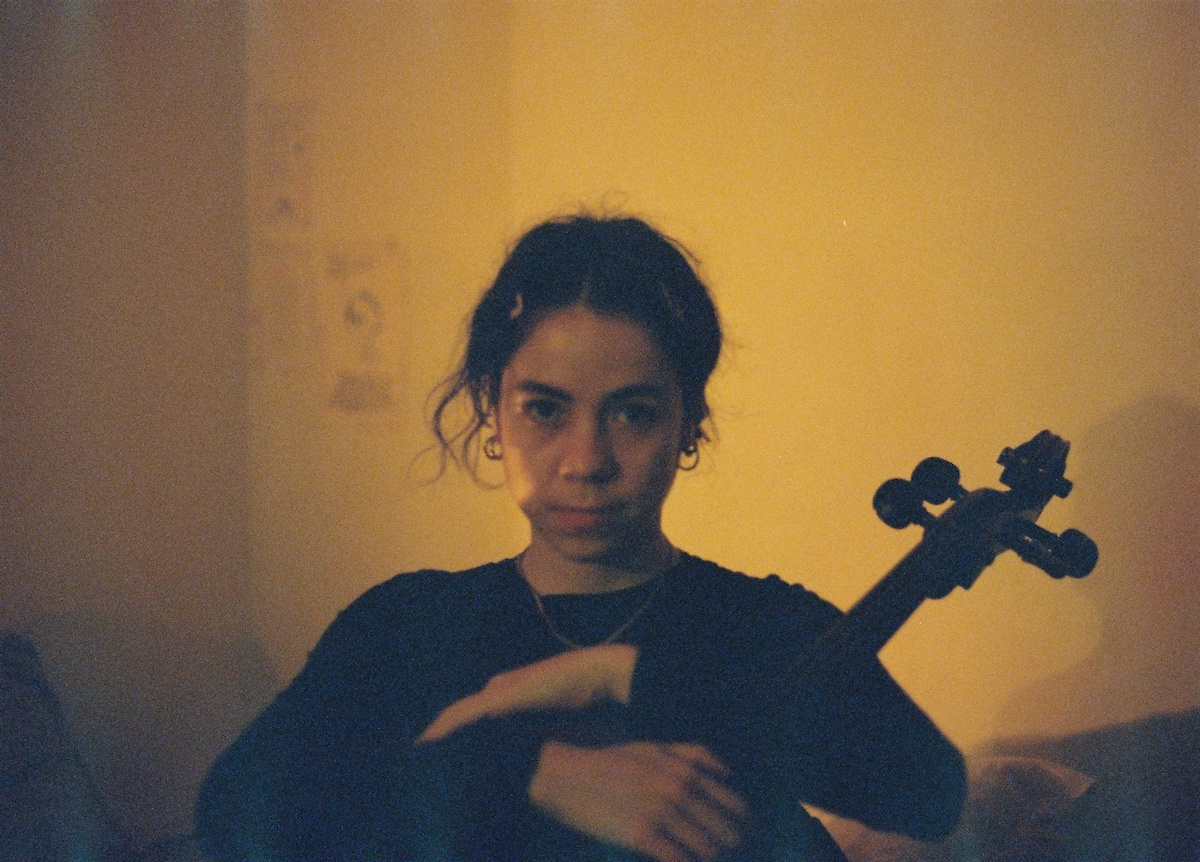
Fratti’s obsession with the impossibility of being understood is echoed all throughout the album. The title is just the first question of many that she asks. In fact, almost every single song with words on it presents at least one new question. In her lyrics, Mabe Fratti creates a universe of uncertainty and longing, where the external images of birds, sea, air and moon coexist with the internal elements of secrets, dreams, doubts and promises. When the singers asks:
Cómo te digo si solo sale un balbuceo?
How can I tell you if all that comes out is babbling?
or
Yo voy a decirte una cosa ¿Puedes confiar? ¿Puedes creer?
I’ll tell you something. Can you trust? Can you believe in it?
It’s unclear if she is questioning herself, a third person, the listener or if she’s asking in the name of all of us. Será… is a record in which the music carries a ton of emotional weight, there’s so many chilling riffs and evocative sounds that it’s easy to overlook the lyrics at first listen. But once you decipher the words behind Mabe’s ethereal melodies, they stay with you long after listening.

These are songs that don’t really hold a specific meaning, instead they leave you thinking, as if the songwriter is transferring her own wonders and ruminations to you. And in that sense, you could say Mabe Fratti accomplishes what she set out to do, even if she remains unsure about her ability to do so:
“I feel I still have a long way to go when it comes to lyrics. I’d like to be able to express myself with more clarity. It’s one thing to write ideas and create images that have to do with the theme I’m exploring, but it’s another to actually do it with clarity. I love reading and I enjoy when someone puts together words in a way that makes me go ‘fuck, I wish I could write like that’. So that’s the one area I’d really like to improve.”
By this point it should be obvious that Fratti struggles with her confidence in verbal communication. She pretty much made a full album about it. On the other hand, she is such a talented musician and composer, that one could think that the natural evolution for her career would be to gradually leave words behind and trust that the music can carry all that she’s trying to convey, but when I asked her if getting rid of the lyrics altogether was an option, she didn’t hesitate:
My voice is definitely an essential part of my expression. I like singing, but it’s not only about the melodies. Words have a rhythmic quality and I’d like to be able to use that in the best way possible someday.

Mabe Fratti has an endearing humbleness when discussing her own projects and ideas. Whether it was her excitement when telling me about the day she met Peter Broderick, who was a personal hero of hers long before they collaborated; or the several times throughout our talk when she would emphasize her lack of knowledge about something; these moments gave me a small glimpse into where her music comes from. She is taking everything in and creating with the same excitement and openness as when she first arrived in Mexico City and was blown away by the free jazz scene she encountered. Even when expressing brilliant ideas, she still makes sure to acknowledge her inspirations and recognize the space she still has for growth. Take this excerpt from her response about the balance of harmony and dissonance in her music, for example:
“I believe there’s beauty in dissonance. Our ears are accustomed to reacting a certain way when hearing certain sounds, but it all depends on the attention you pay to them. If you listen carefully you can appreciate it. I’ve had times when in the midst of noise I find a note or a melody and an idea blooms from that. It’s crazy how we all have an internal mixing board in our brain. We are talking here, but I can choose to focus my attention on what’s happening outside the window even if it’s coming in at a lower volume. It’s really beautiful to bring this ability to a conscious level. You should really check out the work of Pauline Oliveros who was a master of deep listening and talked about the politics of listening, which questions what makes us pay more attention to one sound than other. I feel our internal mixing board betrays when it’s set on default, reducing our capacity for attention. So dissonance can really uncover a lot of things, because once you take control of your mixing board in a conscious way, it becomes something amazing. And I obviously haven’t reached that nirvana, but I like to always have it in mind.”

As I try to bring this article to a satisfactory conclusion, I realize that Mabe Fratti’s quest for successful human communication has no ending.
It starts with her not being sure if she can even express correctly what she is feeling. To use her own image: Are the few drops that come out of the funnel a true representation of what is contained inside? To that uncertainty we then must add all that might get lost in translation from her words and music to what us as the audience receive and understand. Then I went and talked to her about this. We exchanged thoughts about the album in a broken language. Listening back to the recording of our conversation is a bit embarrassing. Clumsy is putting it mildly when I hear all the ambiguous mexican slang and incomplete sentences used as I tried to reach for big ideas. And now, I’m writing this –been doing so for days– trying to express how listening to the album makes me feel and what our conversation added to those impressions. With the hope that whoever reads this might not only be compelled to listen to the album, but can possibly also be moved by the words in their own right. You get the point.
I love writing about music and I love Mabe Fratti’s new album. This should have been simple, but it was a mind-bending challenge that nearly broke my brain. Don’t get me wrong, I enjoyed every minute of it, but not as much as I will enjoy the next time I press play and let the music soak my ears without worrying so much about what it all means. So if you made it all this way, thanks for the company, but in the spirit of clarity and keeping things simple this is the only message you should take away for this: Music is a miracle. This is a great album. If you like weird non-commercial music, then go listen to it.
— —
:: stream/purchase Mabe Fratti here ::
— — — —

Connect to Mabe Fratti on
Facebook, Twitter, Instagram
Discover new music on Atwood Magazine
? © Andrea Villalón
:: Stream Mabe Fratti ::


